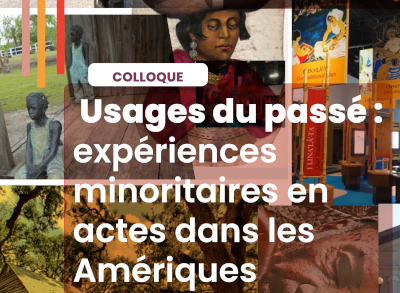Keynotes > Ian Rocksborough-Smith: Revisiting « Black Public History in Chicago » in an Age of Authoritarianism and Oligarchy
Thursday 20, 9:30-10:30 Revisiting « Black Public History in Chicago » in an Age of Authoritarianism and Oligarchy In the years since Black Public History in Postwar Chicago was published (2018), the politics of public history and the representation of minority communities, especially in North America, have undergone significant shifts. This paper revisits my past study done in 2018, placing its key ideas in conversation with more recent developments in public history, museology, education and social justice activism. At its base, the book examines how African American educational activists and cultural workers in post-WWII Chicago used Black history as a transformative political force. Rather than simply celebrating heritage, these groups and individuals used historical representation to challenge racial inequality, reimagine citizenship, and reshape public memory in the crucial years between WWII and the early years of the Cold War. I believe my original research in the book still stands up, since it looks at how grassroots actors like Margaret and Charles Burroughs, who co-founded the DuSable Museum of African American History helped establish new institutional infrastructures for Black historical interpretation. Equally, the Afro-American Heritage Association, which my book treats, as well as numerous school teachers like Madeline Stratton, used history to assert Black agency and force connections between curricula changes, cultural and political Black nationalism, and ascendent civil rights politics in America. In recent years, especially since the police murder of George Floyd in 2020, public history and commemorative heritage sites and projects have become sites of both renewal and controversy. Movements like Black Lives Matter, Indigenous sovereignty campaigns, and calls for radical decolonization have demanded historical institutions and public organizations confront their complicity in systemic forms of racial injustice. At the same moment, right-wing reactions against (often faulty) notions of critical race theory, anti-racist education, and monument removals has underscored the enduring stakes of historical representations in the public sphere. This paper will offer reflections on how public history has evolved in this regard and how public history practitioners in local contexts might best engage these changes by offering reflections on how the Black public history activists of Chicago in the mid-20th Century operated in periods of equally challenging clamp downs on free public speech in the context of McCarthyist America – especially regarding western foreign policy and immigration rights (particularly for Latinx, Indigenous and diasporic racialized communities) and public belonging. This paper also looks at how digital platforms have transformed access to public history efforts and allowed for broader dissemination and new forms of digital story-telling among marginalized communities. The roles of museums, archives, and grassroots cultural organizations have expanded to include restorative justice practices and community-centered curations. These changes exemplify the importance of studying earlier eras of transformative cultural work that utilized different mediums of communication and presentation. Thus, the efforts of Chicago’s public history practitioners post-WWII remain all the more relevant to the present disjuncture. |


